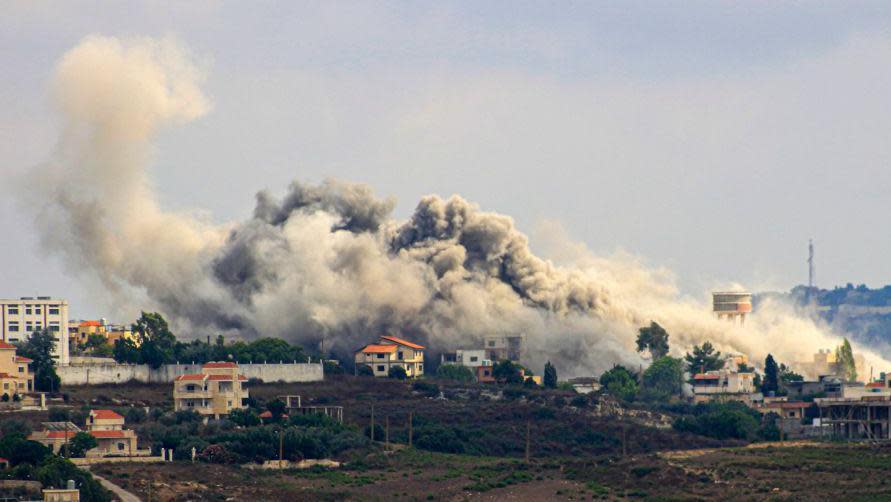Lebanon Fears Dangerous New Phase in Hezbollah-Israel Fighting
Since October, the ongoing conflict between Israel and Hezbollah has escalated dramatically, with near-daily cross-border attacks resulting in hundreds of casualties and displacing tens of thousands. This violence, initially perceived as contained, now raises alarms about a potential all-out war.
Escalation of Violence
The recent attack on the Druze town of Majdal Shams in the Israeli-occupied Golan Heights marked a significant turning point. Israel has accused Hezbollah of orchestrating a strike on a football pitch that killed at least 12 people, including children. Israeli Prime Minister Benjamin Netanyahu vowed that “Hezbollah will pay a heavy price,” indicating a possible shift towards a more aggressive military response. Hezbollah, however, has denied involvement, claiming their attacks were aimed at military targets.
The Context of the Conflict
The hostilities began on October 8, following a deadly Hamas attack on Israel. Hezbollah stated their actions were in solidarity with Palestinians in Gaza. Since then, over 450 people have died in Lebanon, including approximately 350 Hezbollah fighters and 100 civilians, while Israel has reported 23 civilian and 17 military fatalities. The violence has primarily affected southern Lebanon and the Bekaa Valley, areas where Hezbollah operates.
The Risk of Miscalculation
Despite the ongoing strikes, both sides have shown some restraint, attempting to avoid a full-scale confrontation. However, the risk of miscalculation remains high. The recent attack could trigger a more extensive Israeli military operation, especially as Israeli officials express increasing pressure to respond decisively to Hezbollah's actions.
Hezbollah's Military Capabilities
Hezbollah is viewed as a more formidable adversary than Hamas, with an estimated arsenal of 150,000 rockets and missiles, including precision-guided munitions capable of reaching deep into Israeli territory. This military strength poses a significant challenge to Israel's defense systems and raises concerns about the potential for widespread destruction in the event of a full-scale war.
The Humanitarian Impact
The humanitarian situation in Lebanon is dire, with the country already grappling with a severe economic crisis and political instability. The government has limited control over Hezbollah, complicating efforts to manage the conflict. A full-scale war would exacerbate the suffering of a population already facing immense challenges, with 80% living in poverty.
Diplomatic Efforts
Despite the escalating violence, there are ongoing diplomatic efforts to prevent a major conflict. Lebanese Foreign Minister Abdallah Bou Habib has urged Hezbollah to refrain from retaliation, while Israeli officials emphasize the importance of adhering to United Nations Resolution 1701, which aims to maintain peace along the Israel-Lebanon border.
Conclusion
As tensions rise, Lebanon stands at a crossroads, facing the possibility of a dangerous new phase in the Hezbollah-Israel conflict. The international community's role in mediating and de-escalating the situation is crucial to preventing further violence and ensuring stability in the region. The coming days will be critical in determining whether diplomacy can prevail over military confrontation.
